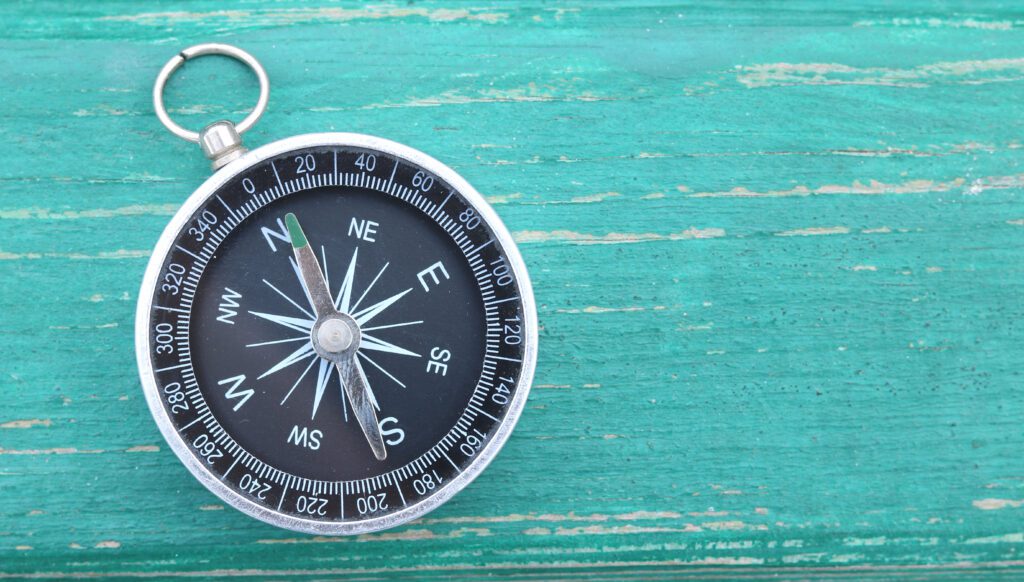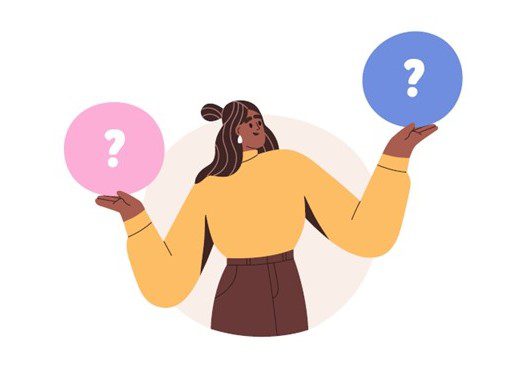

What is my best response?
I turn to my inner compass
What does it mean to have an inner compass?
Let’s see how it might be an idea that can apply to my daily life.
For example, I listen to the news as I make dinner. On one hand I think it is a responsible act to be informed in a constantly changing world. On the other hand, as I listen, I experience a range of emotions from horror to fear, from confusion to seeking to find a sliver of light, from despair to hope.
More often than not, I think, “Just turn it off,” or “change the channel. Listen to beautiful classical music.”
How can I find my way in a complicated world?
I am most often by myself in these moments. No one will know what I decide to do. But I will. I will know what I decide to do in this seemingly small situation. I also will know how I decide to act, think and feel in circumstances that may have a more lasting significance.
How can I be part of the solution and not part of the problem?
When I ask this question of myself, I feel how small my individual life is. I ask myself what can I do to make a positive difference in the face of worldwide forces at play of hunger, war, refugee crises, homelessness, and on and on?
If I were to map my place in time and space, I would be barely the size of a pin prick. That is an overwhelming and humbling realization. The broader context for my individual existence underscores my understanding that I am here now. Each moment is the only one I have to make choices about how to live. I want to be part of the solution to the upheaval in the world today. If all I have is this moment, then how can I live with the fullest possibility of who I am?
How can my inner compass guide me to live my life for the betterment of all?
In answer to that question, I hope this analogy can be helpful.
I used a GPS in my car past the time that it was the navigation system of choice. Sometimes I take take long road trips from our home near Chicago, Illinois to visit our daughter and her family living in Atlanta. I also drive to Cape Cod in the summer. Relying on the GPS to help me find my way. I named my GPS “June. “ When I get to my destination, I was appreciative for the guidance I received. At the successful arrival, I thanked June and told her I couldn’t have done it without her.
Like many other people, I now use the map app on my phone to guide me. I recognize I need an orienting system that helps me to stay on course. There is no actual material device for finding my way in living.
But I am clear about several things: I choose to live awake and not asleep. I choose to bring positive energy, respect and caring to relationships. I choose to live life as a learner and act from what it means to live with love. Participating in Cafh and practicing the daily meditation has clarified and guided me in finding what I feel is important. Cafh helps to orient me in a direction of how I choose to live. My point of origin is fixed within me. That fixed point of origin is my North Star and serves as my inner compass.

How do I use my inner compass in daily life?
It is a joke in my family that I have no sense of direction. I get lost in parking lots. It is a good thing I know where I am at the moment and where my starting point is. For me, having an inner compass is necessary in staying connected to an inner point of reference about how I want to live.
Not every morning, but more often than not, as soon as I wake up, I think “I orient how I live today to the Divine.” On some mornings, my first thoughts are to elevate my thoughts from a habitual barrage of have-to-do’s to invoking the Divine. And on other days I get up. I get going. Orienting the direction of my first thoughts is helpful in energizing my intention in how I want to live my day. I put that intention in the forefront of my mind and heart. These orienting practices are guided by a fixed inner point or my inner compass.
How can I keep my intention at the forefront of my mind?
My starting point begins with incorporating meditation as an essential and regular part of my daily routine. When I first learned to meditate, I asked myself broad, general questions, “what is my life about?” “How do I want to live?” “Is it possible to live in a way that contributes to the greater good?” I didn’t know the answers to those questions, but the questions themselves gave me a sense of direction and purpose.
I start my day with meditation
The inner dialogue or discursive meditation taught in Cafh provides an organizing framework for the meditation exercise for each day of the week. Each day has a Theme and an Effect. A theme of meditation frequently introduced when first using the discursive meditation is the Theme: The Two Roads. Effect: Disattachment. Initially I had no clear idea of what the theme meant. The person who taught me the meditation suggested that the Two Roads symbolizes a choice point – you can choose to go this way or that way in terms of how to relate, act, feel and think. Life presents ongoing choices. Disattachment was not a word or idea I felt familiar with. It was explained that in order to make a choice in small or large actions there is a necessary process of letting go.
A Discursive Meditation on the Two Roads

Where do topics come from for meditation? Topics come from how I live my life. They can also be stimulated by the context of the larger social world. Topics arise from an openness to feelings of awe, wonder and not knowing. Topics arise from an observation of how my thoughts, feelings and actions affect how I live and how I relate to others. If I view my life as a never – ending process of discovery and learning topics of meditation are endless.
For example, I meditate about a topic that is a real issue in my life. As the seasons change from a bright sun filled, blue sky, brilliant red, orange and yellow leaves of Fall to the onset of Winter with bare branches, one gray day after another with no sun in sight; it gets colder and colder and colder. Chicago is known as the windy city. The wind plus low temperatures create bone chilling cold. Talking about the weather is a common in everyday conversation, sometimes prompted by concerns about climate change or by uncertainty about what else to talk about.
The issue I meditate about is not the cold weather itself, but how much I complain about it. I don’t feel good when I complain. My complaints can take positive energy away from others. I recognize that listening to me complain can’t be a pleasant experience. I want to change my habit of complaint.
Invoking a Higher Presence
In the first step of the Discursive Meditation, the invocation I sit in my place of meditation, close my eyes and invoke the Divine Mother. (Using the Divine Mother resonates inwardly for me. Others may call to Higher Power, Teacher, Inner Guide.). I move my awareness from habitual thoughts to a sense of the unknowable that is in life. I open myself to seeing without judging so I am able to learn. The use of images in meditation resonate in the heart.
Meditating about my habit of complaining, I imagine taking a winter walk with a friend and repeating over and over, “I am so cold. I hate being cold. I don’t like being cold.” (As you might imagine my comments can be annoying or an energy drain on others.) As I meditate, the image broadens and I notice the fidgeting and discomfort of my friend. I stop complaining and begin to listen. After a period of silence or waiting in the meditation, a Response enters my consciousness. Complaining does not change the weather. Being upset by the cold doesn’t help anyone. My choice, or the road I take, is to relate to the cold weather in a less personal way.
When the period of meditation ends, the learning gained remains in my awareness. I have an internalized point of reference. I return to the point of reference or my inner compass throughout the day. Instead of complaining about the weather, I use the cold as a wakeup call to notice what is around me and what is within me. I locate an inner compass that guides me in my thoughts, words and actions.
Is an inner compass the same thing as a moral compass?
I think there are some similarities between having a moral compass and an inner compass, both are metaphors that stand for a process. For me a moral compass is about knowing the difference between right and wrong. The difference between right and wrong is often learned, beginning in childhood. If you think back to when you were a child growing up, examples of how and what you learned about right and wrong may come to mind. I often learned the hard way, by doing the morally incorrect act, and suffering with my guilty conscience as a result.
A moral compass is more about having a conscience.
An inner compass is the process of being aware of my actions and choices that are guided by a heartfelt point of reference that is deeply rooted in the interior of my being. On an actual compass the dial moves in four directions: North, South, East and West. The dial of my inner compass consistently points in one direction. The compass always moves toward discovering, in any given moment, situation or interaction, how to be open and to live life fully and with love.
About the Author(s)
Allegra Magrisso is a social worker, therapist, long time meditator, mother and grandmother.





